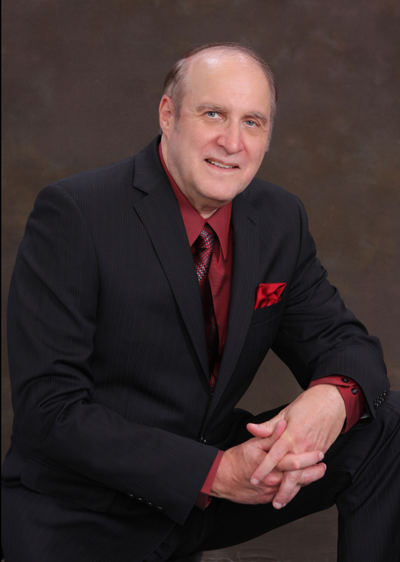
Bill Friedman's 45-Year Historical Research Methodology

Bill Friedman became fascinated with gambling as a young boy on summer vacations with his parents to Lake Tahoe and Las Vegas where he stood in the background watching the casino dealers. He always knew he wanted to become a dealer so after turning 21 he moved to Nevada to pursue his destiny. Most of the table-game executives who worked behind him had worked during the 1930s and 1940s in the wide-open illegal casinos found throughout the country. Many nights after work Bill had a nightcap at a bar listening to one or more of these executives’ incredible experiences operating illegal casinos. He was intrigued and wanted to learn more about their backgrounds, the illegal-casino world, and how gaming control had developed because it was a new form of law enforcement that existed only in Nevada.
Working full time he was not able to conduct research. Then he was drafted early in the Vietnam War and declared conscientious-objector status. He went through a laborious evaluation process about his life and values before his application was approved by the Selective Service System. Conscientious objectors were typically directed to spend their two years of alternative service at the hospital of their choice cleaning bed pans for about $300 a month.
A FBI INVESTIGATION LEADS TO A SELECTIVE SERVICE DRAFT DECISION
The FBI investigation and Selective Service interviews about his background had revealed his research interests. He was the only academician who had developed close personal relationships with members of organized crime. At that time this was especially impressive because law enforcement had limited knowledge about the structure and operation of organized crime and it would be years before the FBI would insert an undercover agent into an organized-crime gang.
A NEW CHAPTER IS WRITTEN IN THE STUDY OF ORGANIZED CRIME
The School of Criminology at the University of California, Berkeley proposed to transform Bill’s research dream into a structured sociological historical study about
the development of organized crime, its impact on Nevada’s casino industry, and the creation of Nevada gaming control. To encourage former illegal gambling operators to cooperate, every question Bill would ask was about events at least 10 years old so participants would know their answers were well beyond the statute of limitations for criminal prosecution.
The Selective Service System ordered Bill to report for two years alternative service with the School of Criminology which in turn directed him to read relevant archived newspapers and other documents in UNLV’s library, interview gaming-control authorities, and hang out with hoodlums in an official research capacity. Bill enjoyed the glories of Las Vegas on a $300-a-month salary from the University of California and at the end of two years became the only person to receive an honorable discharge from the Selective Service for majoring in hoodlums.
Bill knew he had barely tapped the surface of the available information, so during the next 42 years, he devoted all his spare time to finishing his research and the writing of the first of a planned four-volume history of the Nevada gambling industry.
HISTORICAL RESEARCH
Bill searched through 123,000 old newspapers, 200,000 pages of FBI reports, legislative hearings, court records, university oral histories of pioneers in Nevada’s gambling industry and political leaders, and numerous books and magazine articles. After combining all this data into source material, he conducted in-depth, comprehensive interviews with almost 600 people who distinguished themselves by making important contributions to the Nevada casino industry - resort owners, hotel and casino management and marketing executives, organized crime figures, attorneys, bankers, accountants, gaming control and law enforcement officials, political leaders, and newspaper investigative reporters.
BILL’S INTERVIEWS WITH THE HOODS & THEIR BUSINESS DEALINGS
Bill Friedman intersperses his history of the gambling industry with his personal experiences interviewing the hoodlums who built the Las Vegas casinos. For example, his interactions with the two most notorious men in the history of the Nevada gambling industry were dramatic. The most influential organized-crime figure to live in Las Vegas was the closest thing the city ever had to a Godfather. Afraid that Bill’s research would land him in prison, he barked orders for him to stop his research and leave town. In contrast, the toughest man in the industry responded to questions from Bill that he did not like by brandishing a gun along with a threatening stare to make it clear a different question was necessary if the interview was to continue. Both men ultimately cooperated with numerous two-hour interviews over several years, and both mentored his career and influenced his values in a positive manner as a developing young man. Bill’s interviews with the Las Vegas hoods led to many unusual and sometimes scary experiences.
Three of Bill’s good friends owned major legitimate businesses whose clients included the bosses of organized crime and Mafia gangs. One man became known as the “architect of the mob” and drew the plans for their bars, nightclubs, and illegal casinos. Another did the interior decorating and also supplied the furnishings and the kitchen equipment with no money down. By allowing hoods to pay for their interiors from profits, the gangsters could open these facilities with little more investment than a few months rent on the building and the initial liquor inventory. The third man is a marketing and advertising guru who kept these operations filled with customers. Bill reveals for the first time why these and other legitimate businessmen preferred to deal with mobsters over legitimate businessmen and what interacting with these powerful gangsters was like. Every major hood of the mid 1900s was associated with at least one of these four men so as a group these four are an encyclopedia of what each of these powerful criminals was like on a personal man-to-man basis.
